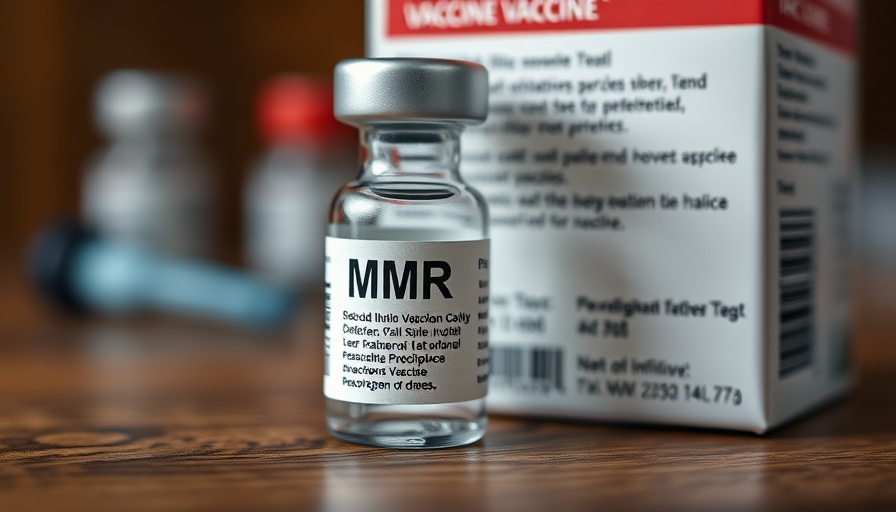
Michigan Faces Rising Health Threats: Understanding the Vaccine Drop
Amid a troubling decline in vaccination rates, Michigan is witnessing a significant surge in cases of measles and whooping cough. The state's vaccination coverage for the MMR (measles, mumps, rubella) vaccine has dropped to 79.4%, down from approximately 85% in 2020, prompting health officials to express grave concerns about public health implications.
Historical Context: A Rise in Vaccine Hesitancy
The roots of declining vaccination rates are complex and often tied to misinformation about vaccine safety and effectiveness. Over the past two decades, increases in anti-vaccine sentiment have been observed nationally, often fueled by social media platforms that spread unfounded fears about vaccines. This increase in hesitancy is not just a Michigan issue; it mirrors trends seen across the United States, with many states reporting similar declines in childhood immunization rates.
Social Implications: Why This Matters to Families
For families, this situation is particularly urgent; infants and young children who are not yet fully vaccinated are the most vulnerable. Diseases like measles are not only highly contagious but can lead to severe health complications, including hospitalization and death. Parents are encouraged to ensure children receive their vaccinations in a timely manner, especially with warmer months approaching when gatherings are more common.
Future Predictions: The Potential Impact on Health Systems
Experts warn that if vaccination rates continue to decline, the next 25 years could see millions of additional measles cases. A recent study indicates that a mere 5% drop in vaccination rates could result in hundreds of thousands of infections. For Michigan's health infrastructure, this could mean increased pressure on hospitals and care providers who may already be stretched thin.
Counterarguments: Perspectives on Vaccination
While the health community advocates for vaccines, some parents hold differing views. A strong narrative surrounding natural immunity and personal freedom has led to resistance against state vaccination policies. These perspectives highlight a complex battle between public health mandates and personal choice, sparking heated debates at local and national levels.
Actions Parents Can Take: Ensuring Protection
The message from health officials is clear: vaccination is vital for community health. Parents can take proactive steps by scheduling overdue vaccinations, consulting healthcare providers about the importance and safety of vaccines, and discussing any concerns they may have with trusted professionals. Community outreach programs are also available to help educate families about vaccination benefits, making it essential for families to engage with these resources.
Common Misconceptions: Addressing Vaccine Myths
One commonly held myth is that vaccines are not necessary for healthy children. In reality, vaccinations save lives by protecting against dangerous diseases. The Centers for Disease Control and Prevention emphasizes that vaccines go through rigorous testing and monitoring for safety and effectiveness. Staying informed can alter perceptions about vaccine necessity, reducing resistance driven by misinformation.
The Call to Action: Protecting Our Children Together
The increasing health risks in Michigan related to declining vaccination rates serve as a crucial reminder for parents to review their children's vaccination status. As communities begin to gather more widely with summer approaching, it is vital to prepare by protecting our most vulnerable populations. Contact your pediatrician to discuss vaccination schedules and ensure your child is protected from preventable diseases.
 Add Row
Add Row  Add
Add 




 Add Row
Add Row  Add
Add 

Write A Comment